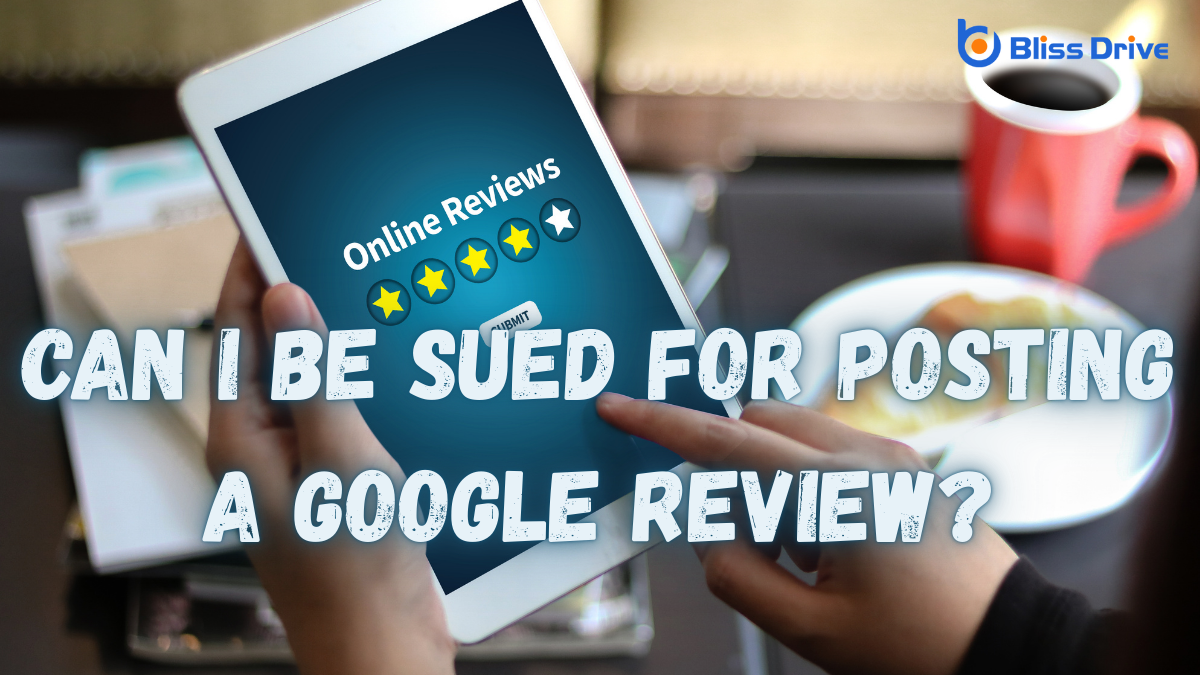Learn More About Us

As someone who frequently shares my thoughts online, I often wonder: Can expressing my experiences through a Google review land me in hot water legally? It turns out, the line between sharing an honest opinion and facing a defamation lawsuit can be surprisingly thin. While I aim to be truthful and fair, understanding the nuances of online defamation is essential. What could turn an innocent review into a potential legal battle? Let's explore the possibilities.
Online defamation occurs when someone posts a false statement about a person or business that harms their reputation. I know it might sound complex, but think of it this way: if you post something untrue online that damages someone's public image, it could be considered defamatory.
It’s important to grasp that defamation isn't about hurting feelings—it’s about falsehoods that harm reputations. When you’re sharing your experiences online, especially in reviews, it’s essential to stick to the facts.
I’ve realized that not everything negative qualifies as defamation. Criticism or opinions, even if harsh, aren't the same as spreading lies.
But if I knowingly share false information, that’s when legal issues might arise. Being truthful and fair can help avoid such troubles.

While it's clear that not all negative remarks are defamatory, understanding what specifically qualifies as a defamatory statement is vital. From my perspective, a statement becomes defamatory when it harms someone's reputation by being both false and damaging.
For you to grasp this concept better, consider these key elements that typically characterize a defamatory statement:
When crafting your reviews, it's important to guarantee your words don't stray into defamatory territory.
Truth plays a pivotal role in defamation claims, serving as a complete defense against accusations of defamation. If you post a review that sticks to the truth, you’re generally protected from being sued for defamation.
When someone accuses you of making a defamatory statement, they must prove your statement was false. By sticking to the facts, you reduce the risk of a successful lawsuit against you.
When writing a review, focus on accurately describing your experience. If you claim a service was poor, back it up with specific instances. Documenting your claims can further support your case if challenged.
When I post a review, it's vital to know the difference between expressing an opinion and stating a fact.
Opinions are generally protected as free speech, but false statements presented as facts can leadA potential customer referred by an affiliate who has shown interest in the product or service but h... to defamation claims.
Understanding this distinction helps me share my thoughts without risking legal consequences.
Distinguishing between opinion and fact is essential when considering the legal implications of your Google review.
When you express an opinion, you're sharing personal feelings or beliefs that can't be proven true or false. However, stating a fact involves declaring something verifiable. Misunderstanding this difference can lead to issues, so here's how to tell them apart:
Understanding these distinctions helps keep your reviews lawful and constructive.
Now that we've explored the difference between opinion and fact, let's focus on how opinions differ from defamation and the legal consequences involved.
Opinions can’t be proven true or false, so they’re generally protected. However, defamation occurs when a false statement harms someone's reputation. If my Google review falsely claims a business is engaged in illegal activities, and I present it as fact, I could face a defamation lawsuit.
It’s vital to understand the distinction because expressing an opinion like "I didn't enjoy the service" is legally safer than making false factual claims.
How can we protect our free speech rights while avoiding defamation pitfalls? Understanding the distinction between opinions and defamation is essential.
When I write a review, I focus on expressing my genuine viewpoint without making false claims. Here’s how I approach it:

When I post a negative review, I know it can hit a business hard financially, as potential customers might think twice before purchasing from them.
Beyond immediate losses, the long-term reputation damage can be challenging to mend, especially if the company doesn't address the issues swiftly.
It's vital to reflect on the impact of my words, as businesses often have to invest time and money to recover and restore their public image.
While many people mightn't consider the wider repercussions of a simple online comment, negative reviews on platforms like Google can have a significant financial impact on businesses.
I want you to understand just how much a single review can influence a company’s bottom line. When potential customers read your review, they might decide against purchasing a product or service, leading to:
Each point highlights the potential financial strain on businesses, emphasizing the power your words hold.
Negative reviews don't just hit a business's finances; they also take a toll on its reputation. When you post a negative review, potential customers may hesitate to engage with that business.
I get it—your experience matters. But consider the ripple effect. The damage goes beyond a single lost sale. It can impact a company's credibility and customer trust. Businesses often have to work hard to recover, sometimes needing to invest in public relations efforts or revisit their customer service strategies.
If you're wondering how businesses bounce back, they often respond promptly and professionally. They address complaints, show empathy, and implement changes.
This process helps rebuild trust and shows potential customers they're committed to improvement. Remember, your review holds power beyond just your personal experience.
Despite the increasing prevalence of online reviews, many people are unsure about the legal protections available to them as reviewers.
I understand how intimidating it might feel to express your honest opinion and worry about potential repercussions. So, let me break it down for you.
As a reviewer, you have some protections, including:
Understanding your rights as a reviewer is empowering, but what if you find yourself facing the threat of a lawsuit? First, don't panic. It’s essential to stay calm and gather all relevant information about the review in question. Document everything—emails, screenshots, and any communication related to the review.
Next, consult a legal professional. They can provide guidance on whether the lawsuit has merit and what steps to take. Also, review your original content to verify it’s factual and honest. This strengthens your defense.
Consider reaching out to the business directly to discuss the issue; sometimes, a simple conversation can resolve misunderstandings. Remember, it's important to defend your rights, but do so with careful consideration and professional advice.

When writing a review, it’s important to be both fair and accurate to guarantee your feedback is helpful and credible. I want to make sure my review truly reflects my experience without exaggeration or omission.
Here are some tips I follow to write a balanced review:
When considering the possibility of being sued for a Google review, gathering relevant information is essential.
I always make sure to preserve digital evidence, like screenshots and emails, to support my statements.
This documentation can protect you and strengthen your case if your review is ever questioned.
While considering the potential consequences of posting a Google review, gathering relevant information becomes vital.
It’s important to guarantee your review is accurate and can be backed up with evidence. I’ve found that collecting specific details helps support your claims and protects you from possible legal issues.
Here are some key pieces of information you should gather:
Preserving digital evidence is essential if you want to protect yourself legally after posting a Google review. I know it might sound tedious, but taking screenshots of your review and any related correspondence can be vital.
This documentation acts as a safeguard, showing exactly what you wrote and when, in case you face legal challenges.
Consider also capturing the business's response and any private messages exchanged. It’s your way of keeping a factual record of events.
Trust me, having this evidence can make a significant difference if things escalate. Don’t just rely on Google to keep your words safe—digital records can change or disappear over time.
Taking these steps empowers you to defend your perspective with accurate, time-stamped proof.
If you find yourself facing a lawsuit over a Google review, it’s vital to understand the legal process to navigate it confidently.
First, take a deep breath and gather your thoughts. Here's a basic roadmap to help you through:
If you're worried about getting sued for a Google review, remember to stick to the facts and share your honest experience. Avoid exaggerations and personal attacks, and you should be in the clear. If a business threatens you with a lawsuit, gather any documentation that supports your review and seek legal advice. Writing fair and accurate reviews not only protects you but also helps others make informed decisions. Keep your reviews truthful, and you’ll minimize legal risks.
